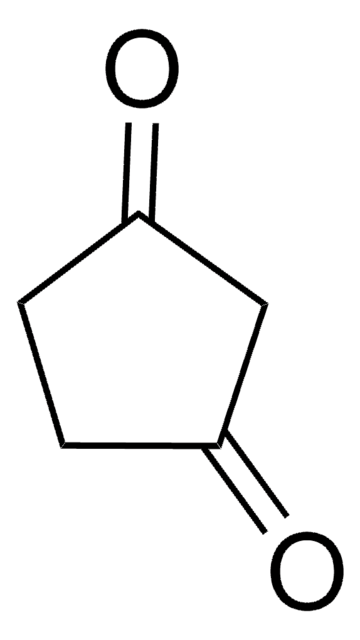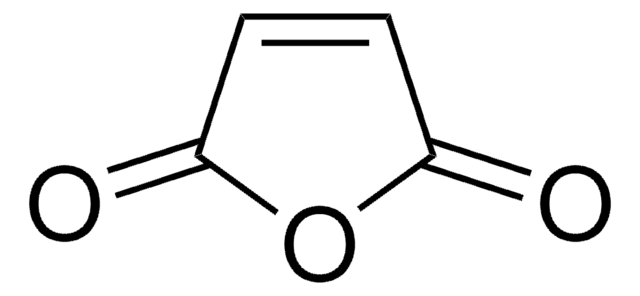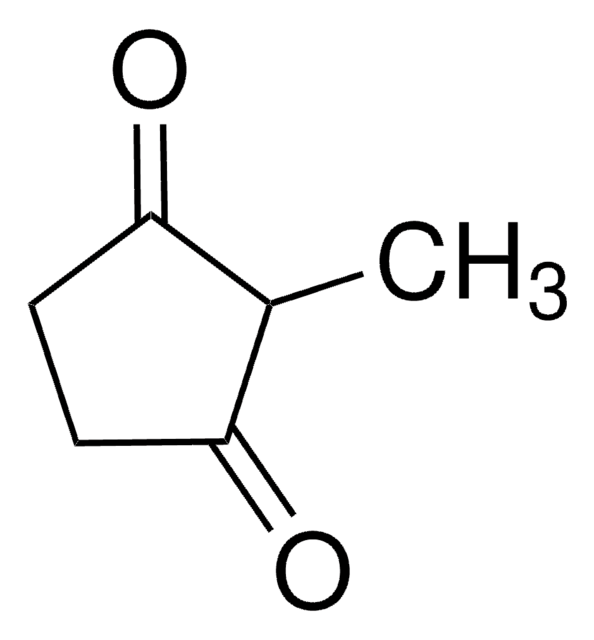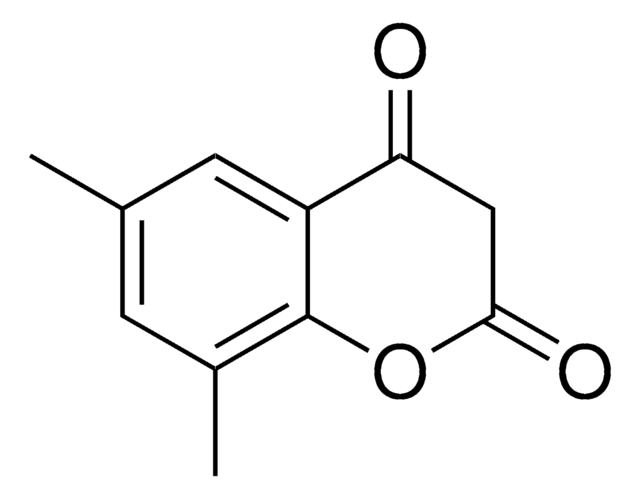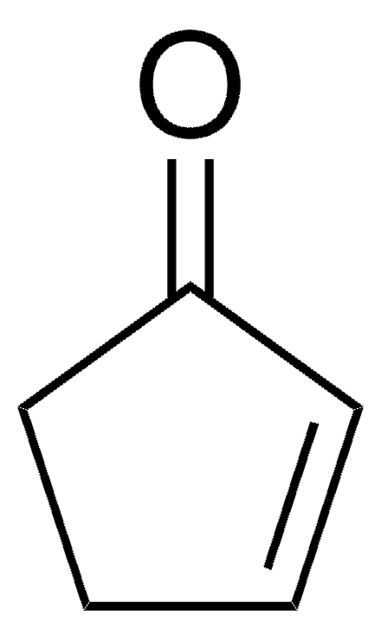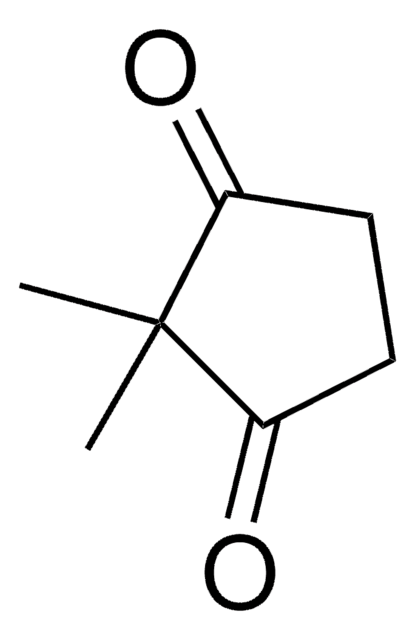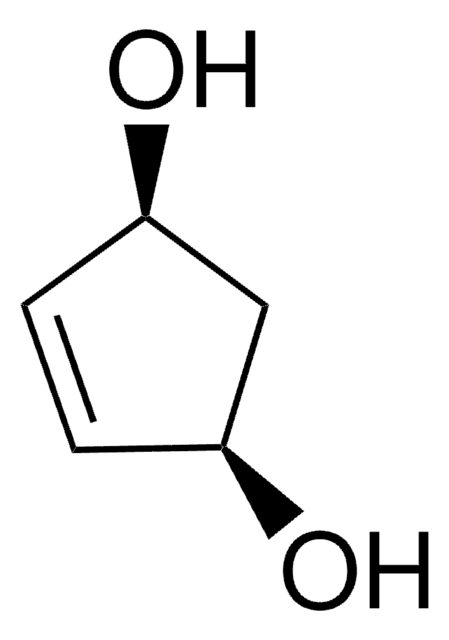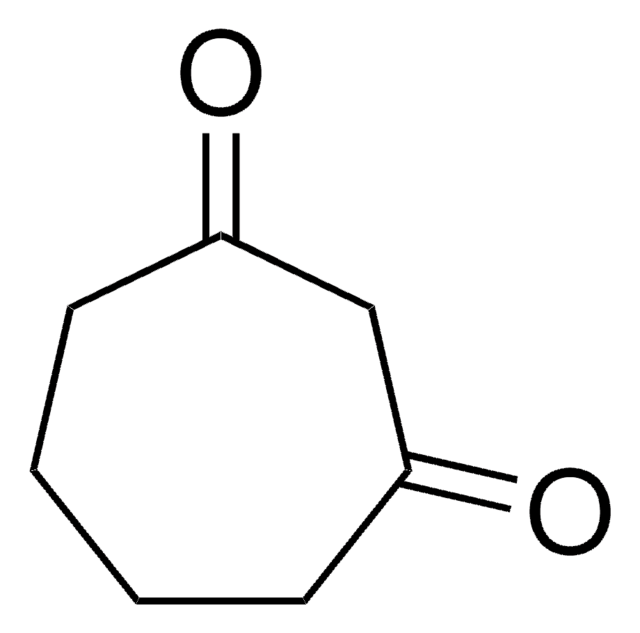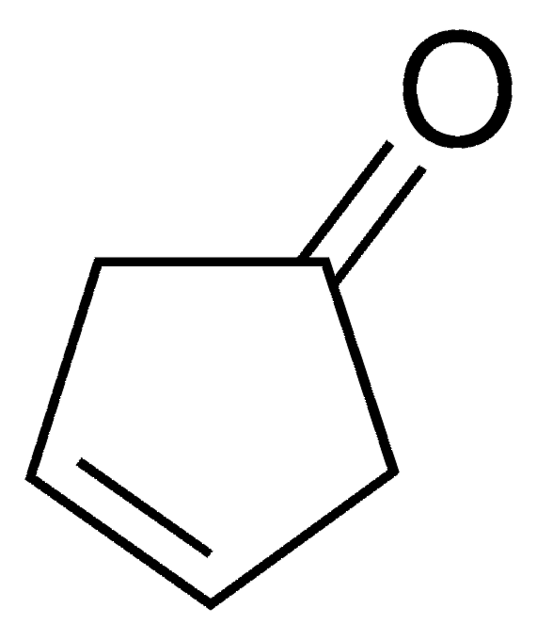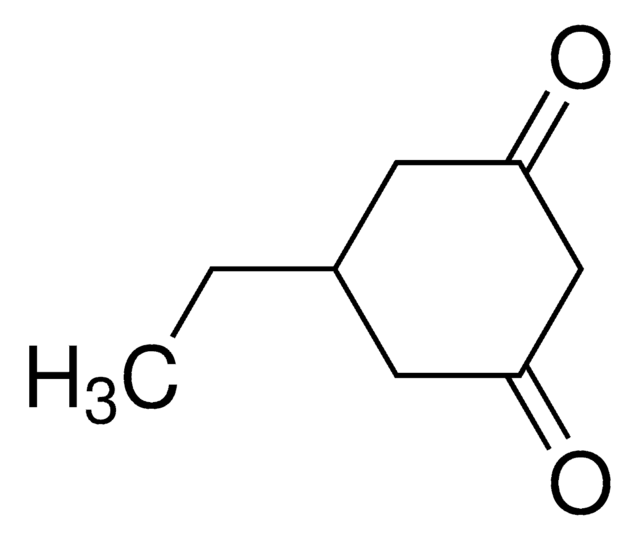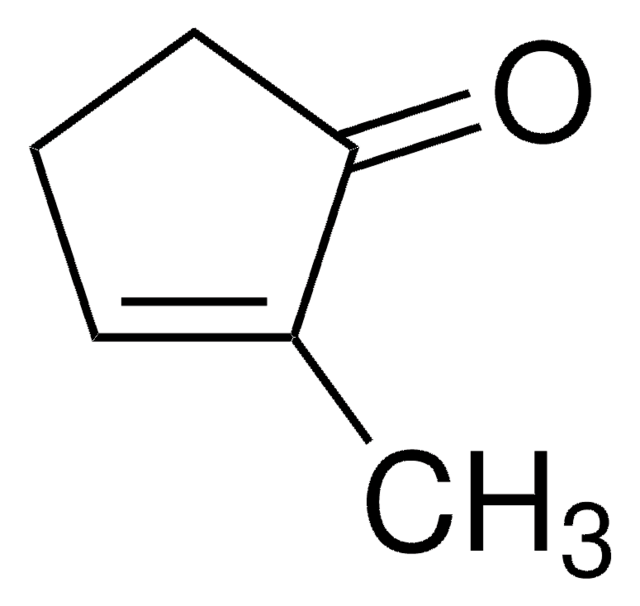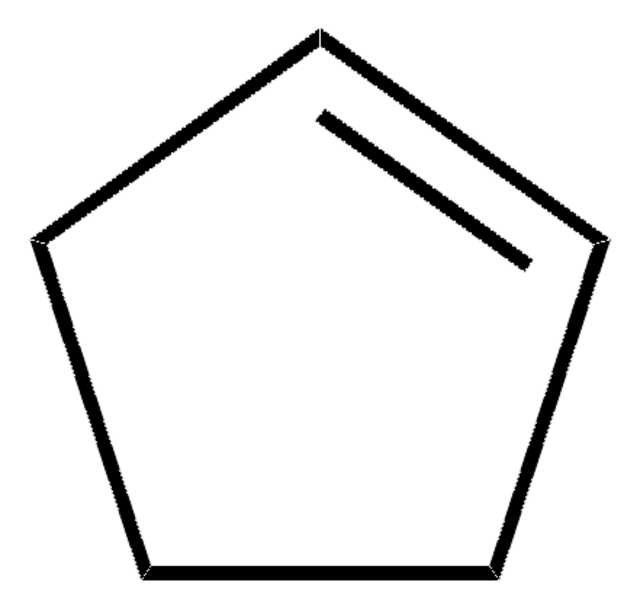161683
4-Cyclopentene-1,3-dione
95%
Synonym(s):
1-Cyclopentene-3,5-dione, 2-Cyclopenten-1,4-dione, 2-Cyclopentene-1,4-dione, Cyclopent-4-en-1,3-dione, Cyclopentene-3,5-dione, Cyclopentenedione
About This Item
Recommended Products
Quality Level
Assay
95%
form
solid
bp
60 °C/1 mmHg (lit.)
mp
34-36 °C (lit.)
storage temp.
2-8°C
SMILES string
O=C1CC(=O)C=C1
InChI
1S/C5H4O2/c6-4-1-2-5(7)3-4/h1-2H,3H2
InChI key
MCFZBCCYOPSZLG-UHFFFAOYSA-N
Looking for similar products? Visit Product Comparison Guide
Related Categories
Application
Signal Word
Warning
Hazard Statements
Precautionary Statements
Hazard Classifications
Acute Tox. 4 Oral - Skin Sens. 1
Storage Class Code
11 - Combustible Solids
WGK
WGK 3
Flash Point(F)
183.2 °F - closed cup
Flash Point(C)
84 °C - closed cup
Personal Protective Equipment
Choose from one of the most recent versions:
Already Own This Product?
Find documentation for the products that you have recently purchased in the Document Library.
Customers Also Viewed
Our team of scientists has experience in all areas of research including Life Science, Material Science, Chemical Synthesis, Chromatography, Analytical and many others.
Contact Technical Service